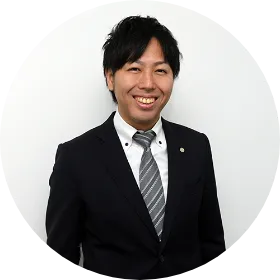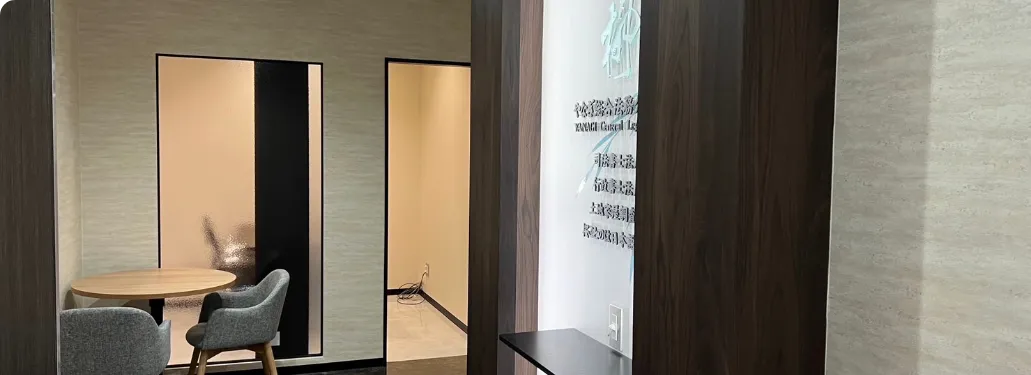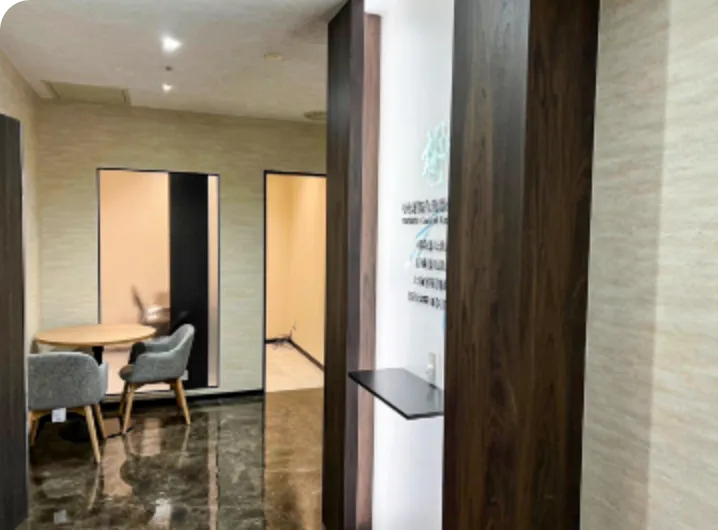Dependent Visa
How to Bring Children with Ex-Spouse (Stepchildren) to Japan? [Successfully Resolved]
- 2024.03.28

“How to bring my children with my ex-spouse from abroad to Japan?” “It is possible to bring my stepchildren from a foreign spouse to Japan?” “To bring my stepchildren to Japan, which Visa should I apply for?” Many people are concerned about visas for their stepchildren as described above. The type of visa that applies to your child depends on the type of visa you (or your spouse) have. This time, we will explain Visas for stepchildren to come to Japan, with a successfully resolved case as an example of how our administrative striver would solve similar cases.
Details about the case
Our client, Mrs. A (Japanese), wanted to bring her stepchild from her foreign husband (permanent resident) to Japan.
However, she was unsure of which type of visa to apply for, or what kind of materials she needed to prepare.
So, she has consulted us for help.
Client: Mrs. A (Japanese)
Visa Applicant: B (Mrs. A’s spouse’s child with his ex-wife)
Nationality, region, etc.: non-Asian
Subjects of the consultation: which type of status of residence to seek for her foreign husband’s child and how to apply
Circumstances: The stepchild cannot speak Japanese
The solution from our administrative striver
1) Unsure of which visa to apply for the stepchild
In this case, we applied for the residence status listed in Notification No. 6 (I) for Long-term Residents.”
2) Less than 2 months after the application, we got approved on “Notification No. 6 (I) for Long-term Residents” status.
3) After the issuance, the family smoothly started their life in Japan, and the stepchild has been able to attend school in Japan.
Key points about getting a visa for stepchildren
First of all, as Client A mentioned, it is difficult to know what kind of visa to apply for when it comes to “stepchildren” despite it not being a major case.
There are many types of visas that a stepchild can obtain, we will list some common examples.
Special adoption with a Japanese national (both adoptive parents need to support the special adoption system in their home country law) → “Spouse or Child of Japanese National”
Stepchild from a holder of the “Spouse or Child of Japanese National” visa → “Long-term Resident”
Stepchild from a holder of the “Spouse or Child of Permanent Resident” visa → “Long-term Resident”
Stepchild who was born in Japan from a holder of the “Permanent Resident” visa → “Spouse or Child of Permanent Resident”
Stepchild who was born abroad from a holder of the “Permanent Resident” visa → “Long-term Resident”
Stepchild from a holder of the “Engineer/Specialist in Humanities/International Services” visa → “Dependent”
Stepchild from a holder of either the “Highly Skilled Professional” visa or “Designated Activities” (like nurse or care workers from certain nations) visa → “Designated Activities”
A dependent child of a foreign national with a family stay visa who has not been adopted → “Designated Activities not listed in the ‘Notification’”
A dependent child of a foreign national with a family stay visa who has been adopted → “Dependent”
Etc.…
| Special adoption with a Japanese national (both adoptive parents need to support the special adoption system in their home country law) | “Spouse or Child of Japanese National” |
| Stepchild from a holder of the “Spouse or Child of Japanese National” visa | “Long-term Resident” |
| Stepchild from a holder of the “Spouse or Child of Permanent Resident” visa | “Long-term Resident” |
| Stepchild who was born in Japan from a holder of the “Permanent Resident” visa | “Spouse or Child of Permanent Resident” |
| Stepchild who was born abroad from a holder of the “Permanent Resident” visa | “Long-term Resident” |
| Stepchild from a holder of the “Engineer/Specialist in Humanities/International Services” visa | “Dependent” |
| Stepchild from a holder of either the “Highly Skilled Professional” visa or “Designated Activities” (like nurse or care workers from certain nations) visa | “Designated Activities” |
| A dependent child of a foreign national with a family stay visa who has not been adopted | “Designated Activities not listed in the ‘Notification’” |
| A dependent child of a foreign national with a family stay visa who has been adopted | “Dependent” |
In this case, since Mrs. A’s husband is a permanent resident and the spouse of a Japanese national, the “Long-term Resident” visa is best suited.
What is the “Long-term Resident” visa…?
It is defined as “those who are authorized to reside in Japan with a period of stay designated by the Minister of Justice in consideration of special circumstances,” and can include Japanese foreign nationals (2nd and 3rd generation),
To obtain a “Long-term Resident” visa, applicants need to pay attention to the following.
- The stepchild must be the biological child of the foreigner (and must have parental rights)
- The stepchild must be a minor.
- That the stepchildren have been living on the support of their parents to the present time.
- Must have the financial ability to continue to provide support.
- The need to receive support from the parent in Japan, rather than from the other biological parent or other relatives, and that it is in the child’s best interest
Point-by-point explanation.
1. The stepchild must be the biological child of the foreigner (and have parental rights)
→Documentation in the home country is required to prove that the stepchild is the biological child.
Birth certificates, certificates of kinship, etc. Documents to be obtained vary from country to country.
| Point to be noted☝ |
| In this case, Mrs. A’s husband had custody of the children, so we also retrieved the records that stated this. In the case of divorce, etc., it is also important to note whether custody is joint or sole. Note that the Hague Convention provides for the removal of children, so in the case of joint custody, the consent of the other party is required. |
2. The stepchild must be a minor.
→The applicant must be a minor and must be supported by his/her parents. If you wish to bring your child to Japan for the purpose of employment or to study in Japan, please consider a work visa or a student visa.
| Point to be noted☝ |
| In this case, because the stepchild was “of an age that requires compulsory education in Japan” and “still studying Japanese and having difficulty communicating”, We looked for possible schools in advance and researched whether or not we could enroll in them, and included this information in our statement of reasons. |
3. That the stepchildren have been living on the support of their parents to the present (financial capacity).
→If the child is not dependent on the parent who is bringing him or her to Japan (or if the child has another guardian whom he or she can depend on), there is no longer a need to bring the child all the way to Japan, and the visa for the stepchild will be difficult to obtain.
For that, it is necessary to explain firmly that the stepchild has been living on the support of his or her parents up to the present.
| Point to be noted☝ |
| In addition to simply explaining the reasons in a statement of reasons, the applicant can also provide evidence such as money transfer records, call records, travel records, etc. |
4. Must have the financial ability to continue to provide support
→The applicant must prove that he or she can live without any problems even if one more dependent child is added to the family by bringing his or her stepchild to Japan.
There is no clear standard for annual income, but it depends on the number of dependents.
| Point to be noted☝ |
| Proof may include a taxation certificate, a copy of your savings account statement, and if you own a home, a certificate of registered matters. |
5. The need to receive support from the parent in Japan, rather than from another biological parent or relative, and that it is in the child’s best interest
→In this case, there were circumstances in which the other parent or relative was unable to take care of the child, and it was necessary for the child to receive support from the parent in Japan. The child himself also wished to receive support from his parent in Japan.
| Point to be noted☝ |
| We explained in the statement of reasons why we have decided to call them to Japan now, and that their parents and relatives who have been taking care of them in their home country are unable to continue taking care of them. |
Customer’s Voice
“Even if we had not been able to obtain the status of residence this time, they did everything they could to prepare us for the application process so that if our application was not accepted, it would be our own problem (e.g., income and other financial aspects). Before you give up and say, “It may be impossible”, please consult with the “Yanagi KAJI Group” first. We will help you make the right decision, prepare carefully, and show you the way that will be satisfactory for your emotional needs.”
-We have received such positive feedback.
Related reference Interview video in preparation
Comments from the staff in charge
In this application, we advised the applicant not only on obtaining the status of residence but also gave advice on school and home environment, considering what to expect after the child actually comes to Japan. In addition, due to the situation in the child’s country of residence and the circumstances of the person who had been taking care of the child, our client wished to invite the child to Japan as soon as possible, so we also added that into the statement of reasons.
It seems that the Immigration Bureau’s decision also took the surrounding circumstances into consideration, I was very relieved that the residency status was granted earlier than usual.
Summary
In this case, since the applicant was the spouse of a Japanese national, the status of a Long-term Resident was chosen for the child. However, the type of status of residence for the child depends on the status of residence held by you or your spouse. We will support your application by informing you of the best status of residence for each situation. If you have any questions about your child’s status of residence or nationality, please feel free to contact us.
We are Yanagi Group, which have offices in Osaka (Abeno and Tennoji), and our affiliated offices in Tokyo (Shibuya and Ebisu) are also available for an on-site consultation. We have handled many applications for permanent residence permits, naturalization permits, work visas, college student visas, management visas, etc., as well as visa renewal procedures related to the status of residence with the Immigration Bureau (Immigration Bureau) as a one-stop service. Our experienced administrative scriveners are also available to help you with any problems you may have.
We also have staff members who can speak each of the native languages and can assist you in obtaining a visa.
※If you wish to be consulted in Nepali or Bengali, please inform us in advance via our website or social media, and the translator will contact you ahead of time.
Please feel free to contact us if you have any questions about your status of residence or visa, even if they are trivial.
Toll-free number: 0120-138-552
For English speakers: 080-9346-2991
For Chinese speakers: 090-8456-6196
For Korean speakers: 090-8448-2133
For Vietnamese speakers: 080-5510-2593
Editor of this article

- Ryota Yanagimoto
- Administrative Scrivener/Judicial Scrivener
At the age of 24, he passed the national examinations for judicial scrivener, administrative scrivener, and wage service manager at the same time.
While working as a full-time lecturer at a major prep school, he independently opened a legal office related to judicial scriveners and administrative scriveners,
and he has experience as a judicial scrivener and an administrative scrivener for more than 15 years so far.
He has been actively contributing to various industries such as publicly listed companies, real estate companies, financial institutions, elderly care services, and professional organizations by conducting seminars, lectures, and talks.
And now he has a record of over 60 presentations so far.
Furthermore, as the president of a Japanese language school announced by the Ministry of Justice and Acts, and an advisor to a real estate company (capable of handling foreign clients),
he has been involved in various aspects of industries related to foreigners.
It is recommended to consult with experts when it comes to visas, naturalization, and residency matters.

Our office has specialized experts in visa and naturalization applications who are available to assist with free consultations (limited to the first session) and inquiries related to various visa applications and naturalization applications.
Additionally, we have foreign staff proficient in English, Chinese, and Korean languages with specialized knowledge, and they are present to provide support. They can accommodate consultations and inquiries in each language. Feel free to use our free consultation and inquiry services from here.





















 0120-138-552
0120-138-552 Free
Consultation
Free
Consultation Contact Us
Contact Us